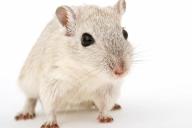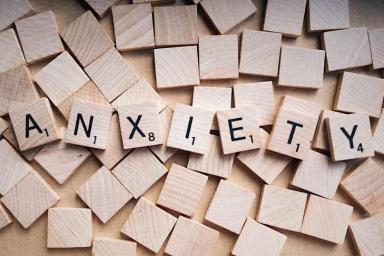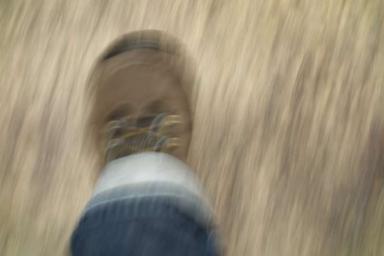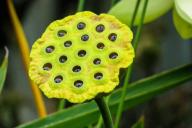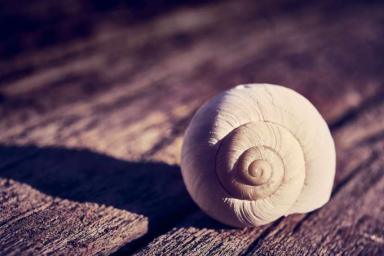Psychology
A new discovery: Panic attacks – it hides there
Scientists are studying panic attacks to understand how they happen in the brain. They found a brain circuit that is tied to panic disorder.
Kate Yakimchuk research panic attack brain activity fears anxiety 17 January 2024A new discovery: A hormone receptor that blocks social anxiety
Researchers found that a specific hormone receptor called estrogen receptor (ER) in the brain's limbic system helps reduce anxiety in male mice during social situations. They also discovered that ER has a different distribution and location compared to another receptor called ER.
Kate Yakimchuk research lab mice social anxiety experiment hormones 17 January 2024A new discovery: RSV is dangerous – it leads to more severe conditions
Even small health problems can turn into big ones when you don't treat them seriously. A recent study discovered that respiratory syncytial virus (RSV), a common infection in kids and seniors, can harm nerve cells and even cause nerve damage.
Kate Yakimchuk research health facts virus health problems brain 17 January 2024Interesting Facts: How Meditation is Different from Napping
The main difference between meditation and sleep is the obligatory presence of volitional effort - it ensures concentration and controls the entire meditative process.
Diana Dashkevich mental health health meditation relaxation psychologist tips 16 January 2024Psychologist Explanation: What Is High-Functioning Anxiety
The term “high-functioning anxiety” applies to individuals who have symptoms of anxiety while maintaining a high level of functionality in various aspects of their lives.
Diana Dashkevich menta health anxiety gardening tips fun facts 16 January 2024A new study: Unexpected situations – researching specific brain cells
Have you ever wondered what happens in your brain when you face some unexpected situations? Scientists have discovered something new in their research about chandelier cells, a special type of brain cell.
Kate Yakimchuk research surprise brain activity nervous system body 16 January 2024A new study: Less inflammation matters – a new study proves that
In people with ALS, the neurons undergo changes that trigger the activation of immune cells. A recent experiment shows that reducing inflammation could help decrease the symptoms of the disease.
Kate Yakimchuk research inflammation health facts immune system neurons 16 January 2024A new discovery: Researching traumatic stress – it's tied to smaller brain volume
New research reveals that adults with PTSD tend to have smaller cerebellums, a part of the brain responsible for movement coordination and balance. It is unclear whether a smaller cerebellum contributes to the development of PTSD or if PTSD causes the shrinkage.
Kate Yakimchuk research stress cognitive skills brain volume health 16 January 2024A new experiment: Predicting the weather – chronic pain researched
Have you ever experienced some chronic pain just to understand that you could predict weather by it? According to an experiment, around 70% of people suffering from chronic pain would change their plans based on weather-related pain forecasts.
Kate Yakimchuk research weather pain chronic pain health facts 16 January 2024Panic Attack: Signs and Causes
Panic attacks (episodic paroxysmal anxiety) are attacks of severe anxiety (panic) or fear (most often - fear of death, less often - fear of loss of consciousness, loss of control, helplessness or fear of “going crazy”), accompanied by a rapid heartbeat and a feeling of “suffocation”, "lack of air."
Diana Dashkevich health mental health psychotherapy psychologist tips panic 15 January 2024Trypophobia: What is it
This is the fear of cluster holes (that is, clusters of holes). Clusters of small holes in organic objects, such as lotus fruits or bubbles in dough, can cause tremors, itchy skin, nausea and a general feeling of discomfort.
Diana Dashkevich fears mental health emotions fun facts psychologist tips 15 January 2024A new study: Checking your phone – how a habit turns into obsession
A recent study has found that excessive smartphone usage can be detrimental to individuals with obsessive-compulsive disorder. The research examined the relationship between OCD symptoms and Problematic Smartphone Use (PSU) scores.
Kate Yakimchuk research ocd mental health smartphone compulsive behaviors 15 January 2024A new discovery: Love is blind – and now we know why
You've probably heard that love is blind, or that people who are in love can sometimes do silly things – but why? A team of specialists decided to discover more about this topic, and they seem to find at least one of the possible answers to that.
Kate Yakimchuk research in love brain activity science hormones 15 January 2024A new discovery: Bigger brain spaces – can be autism
Scientists discovered that babies with bigger spaces around blood vessels in their brains, known as perivascular spaces, are more likely to develop autism. These babies also tend to have sleep issues as they grow older.
Kate Yakimchuk research brain development autism mental health science 15 January 2024Important to Know: Why You Need to Get Out of Your Comfort Zone
The more tests you take, the better you understand yourself and your capabilities.
Diana Dashkevich comfort zone comfort life fun facts psychologist tips 15 January 2024Interesting Facts: What Affects a Child's Intelligence
Scientists identify 4 key factors for developing abilities: 1 - physical activity and proper nutrition, 2 - education of self-control, 3 - close and trusting relationships in the family, 4 - creativity.
Diana Dashkevich children child development intelligence mental health parenting 14 January 2024Psychologist's tips: Be initiative, not clingy
When talking to someone you like, you probably want to be more initiative, so your communication won't stop – but how to do that? Lots of people are afraid of being proactive, because they don't want to be seen as clingy, needy, or desperate.
Kate Yakimchuk communication self-esteem social skills relationship tips 14 January 2024A new discovery: Hearing loss is dangerous – it might be associated with dementia
When people have trouble hearing, they have to work harder to listen, which can affect how their brain functions. A big study with information from more than 573,000 people discovered a link between hearing loss and the development of dementia.
Kate Yakimchuk research hearing loss dementia health science 14 January 2024Psychologist's insights: A poor man's mentality – does it exist?
When surfing the net, you can come across a "poor man's mentality" term, which means that some people tend to think “poor”, which affects their lives. But is it actually true? Can your own mindset affect your financial situations that much?
Kate Yakimchuk poor mentality self-esteem money budget mindset 14 January 2024Interesting Facts: How Travel Affects Mental Health
Psychologists assure that traveling radically changes a person. They not only broaden our horizons, saturate our lives with bright impressions and colors, but also change our vision of the world, our attitude towards people around us, help us set priorities correctly and change values.
Diana Dashkevich travel health mental health fun facts 14 January 2024
